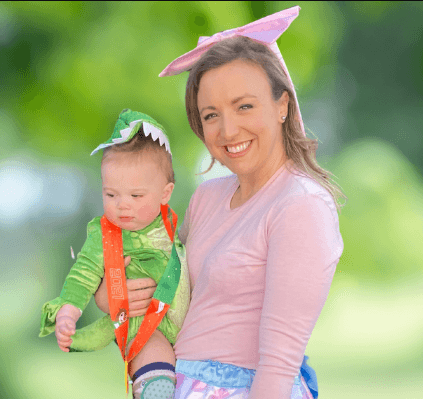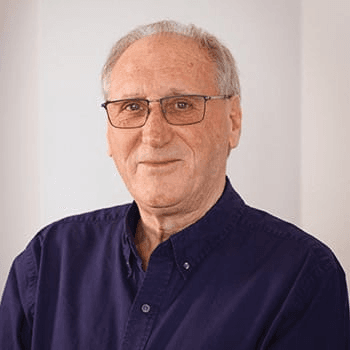How Rift Labs Streamlined Global Fulfillment with WooCommerce and Shipwire


Business Description
Table of Contents
Navigate through the case study sections
Executive Summary
Case Study Content
Background
Rift Labs was born in early 2014 when engineer Morten Hjerde and CRM advisor Marianne Braathen-Hals grew tired of bulky lighting gear. They joined forces to design the KICK light, a compact 2x2 bi-color LED fixture that fit in a pocket. A Kickstarter campaign doubled its funding goal. With early buzz from photographers and modest professional use, the pair found themselves running a hardware brand on WordPress and WooCommerce.
Design and Crowdfunding
At first the project was a side gig for both. They refined prototypes in a small workshop, shared test shots with peers, and built a simple online store using WooCommerce. When the Kickstarter went live, the response was overwhelming and they hit 200% of their funding goal. Suddenly, the workshop was flooded with orders. Packing tiny boxes felt like a basement assembly line, and it was clear they needed a different approach before the brand could grow.
Fulfillment Became a Bottleneck
Once backers started receiving their KICK lights, Morten and Marianne spent hours stuffing envelopes and labeling boxes. This manual rush cut into design time and left them hunting for shipping rates across carriers. They realized quickly that fulfillment was not what energized them. They was excited about creative controls and camera tests, not tape guns. Operating in-house would not scale if they wanted to serve international customers or keep up with social media momentum.
Choosing a Fulfillment Partner
The team explored several logistics services, but one requirement stood out: the shipping solution had to plug into their existing WooCommerce store and push orders automatically. They selected Shipwire for its global network of warehouses and a plugin that promised an easy link with WooCommerce. The integration step was described as painless by the founders. Suddenly, every online sale triggered a hands-off workflow: orders moved to Shipwire, labels printed, and packages shipped without manual clicks.
Operational Lift and Time Savings
With WooCommerce talking to Shipwire’s API, the manual to-dos vanished. Packaging, meter readings, and carrier negotiations disappeared from the to-do list. The team saved dozens of hours each month, freeing them up to craft new firmware updates for the KICK lights and refine marketing campaigns. From a cramped studio shipping spot, they shifted to a strategy session focus. The process felt simple enough: one setup, many results.
Scaling Internationally
Stock began to sit in Shipwire facilities in North America, Europe, and Asia. Customers around the world could choose faster delivery options at checkout, cutting transit times by up to 50%. The team saw an uptick in repeat purchases, as hobbyists and pros alike knew they could expect reliable service anywhere. Orders kept rolling in without the founders dropping shipping tasks or losing track of inventory.
Results and Growth
As of today, Rift Labs has shipped over 1,000 KICK lights through the Shipwire network, fulfilling orders from thousands of photographers. The brand has featured in industry media and won nods from Norwegian directors pushing light into creative shoots. The automated workflow supported a fivefold increase in order volume year-over-year, all while keeping headcount lean. The founders now spend full time on product and community, rather than chasing boxes.
Lessons Learned
Picking a flexible e-commerce solution and matching it with a fulfillment partner that integrates out of the box solved their biggest headache. By automating repeatable tasks, they preserved creative energy and handled growth without adding staff. Early planning for scale can save a small team from chaos when demand spikes.
Conclusion
Rift Labs shows that entrepreneurs can build both hardware and a global supply chain on a budget. With WooCommerce and Shipwire in place, the KICK light business moved from side gig to full-time venture. Founders regained time, delivered faster, and maintained a lean setup ready for the next product push.
Key Takeaways
- 1Automating with WooCommerce and Shipwire freed Rift Labs from manual packaging, saving dozens of hours each month
- 2Outsourcing shipping to Shipwire allowed Rift Labs to serve international customers with 50% faster delivery times from multiple warehouses
- 3Using a flexible platform like WooCommerce enabled Rift Labs to extend features as needed without hitting rigid limitations
- 4By hitting 200% of their Kickstarter goal, Rift Labs secured funding and validated demand before scaling production and fulfillment
- 5Storing inventory in Shipwire’s network prevented in-house bottlenecks and supported a fivefold increase in order volume year-over-year
- 6Seamless plugin integration ensured that every WooCommerce order was automatically processed, eliminating human errors in shipping
Tools & Technologies Used
Premium Content Locked
Subscribe to access the tools and technologies used in this case study.
Subscribe NowHow to Replicate This Success
Premium Content Locked
Subscribe to access the step-by-step replication guide for this case study.
Subscribe NowInterested in Being Featured?
Share your success story with our community of entrepreneurs.
Explore More Case Studies
Discover other inspiring business success stories

How Flwr’s Minimalist Bouquet Brand Bloomed with Custom WooCommerce Magic
Flwr is a boutique flower studio in Auckland that streamlined its offerings to six seasonal palettes, then teamed up wit...
Flwr

From One Skirt to a $120K Exit: Dottie for Running’s 10-Year E-Commerce Journey
After starting in 2015 with just a handmade skirt and $5,000, Dottie for Running became a staple of the runDisney commun...
Dottie for Running

How Hugh Grossman Sold DayTradeSPY for 7 Figures After Turning Losses Into a Financial Win
Hugh Grossman went from losing half his retirement savings to founding DayTradeSPY, a profitable educational business fo...
DayTradeSPY